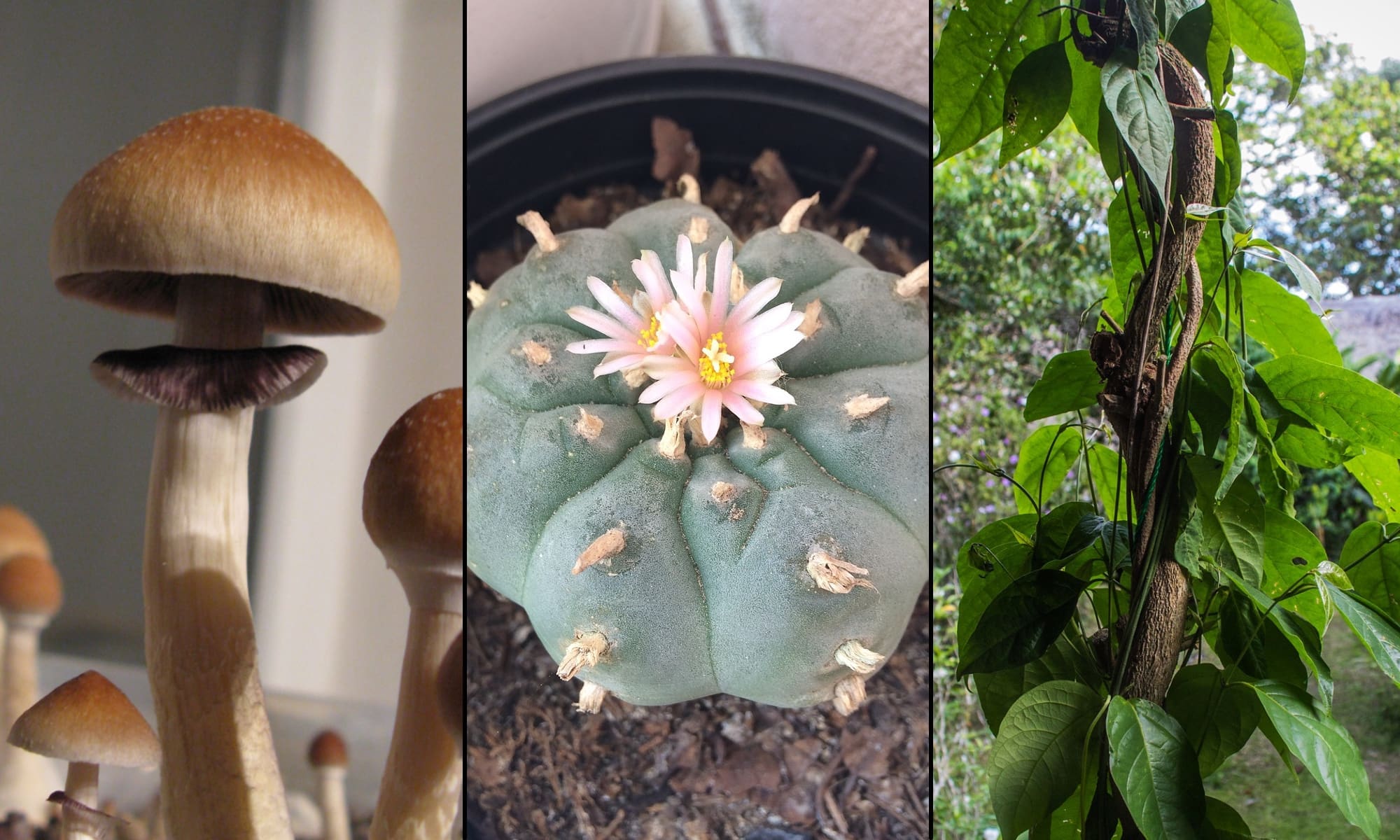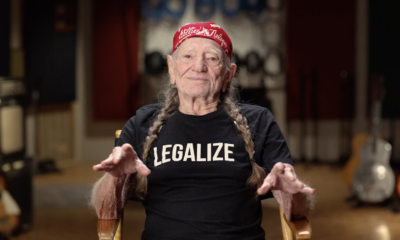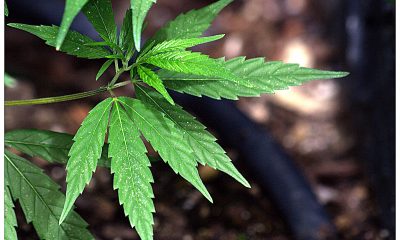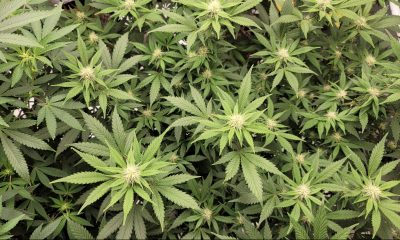Science & Health
Federal Health Agency Announces $2 Million In Funding To Develop Psychedelic Treatments For Substance Use Disorders

The National Institutes of Health (NIH) is soliciting proposals to develop psychedelics into treatments for substance use disorder (SUD), with plans to issue $2 million in grant money toward the research projects during fiscal year 2025.
The funding opportunity will support research into a range of substances that might be used treat addiction, including “classic psychedelics” such as psilocybin and LSD, empathogens such as MDMA, dissociatives such as ketamine and other hallucinogens, including ibogaine and its analogues. The NIH listing refers to all the substances broadly as “psychedelics.”
“There is an urgent need to develop novel treatments for SUD in light of the escalating rates of substance use, addiction, and overdose. Psychedelics may offer a new potential therapeutic use in SUD,” it says. “The ultimate goal is to advance the development of safe and effective treatments for SUDs with psychedelics in the FDA [Food and Drug Administration] approval pathway.”
NIH announced the new funding opportunity on Wednesday. Applications will be accepted online from January 28 through February 28 of next year. The National Institute on Drug Abuse (NIDA), a division of NIH, will administer the grant program.
Psychedelics Treatment Research in Substance Use Disorder (UG3/UH3 Clinical Trials Optional) https://t.co/4sJMTRzx0g
— NIH Funding (@NIHFunding) November 1, 2023
“Despite the widespread claims of the therapeutic effects of psychedelics for substance use disorders (SUDs), their safety and efficacy have not been sufficiently and empirically established,” NIH says in the listing, “and there are no psychedelics that are approved by the FDA for the treatment of SUDs.”
The agency acknowledges in the posting that psychedelics are more complicated to evaluate than many more traditional pharmaceuticals, writing that, “With psychedelic therapies, the complex interplay between pharmacotherapy and psychotherapy makes it difficult to establish the degree to which the psychedelic drug requires a specific dose for the therapeutic effect, as well as how frequently and for how long it should be administered.”
“Therefore,” the posting continues, “it is essential to establish the optimal type of psychotherapy to use with a psychedelic drug treatment, the number of the sessions required, as well as their content, duration, and frequency.”
The goal is to further develop psychedelics that can treat SUDs for opioids, methamphetamine, cocaine, nicotine, cannabis “or any other illicit substance use, except alcohol.” The posting does not clarify why alcohol is excluded.
Clinical trials for the funding round are optional. Applicants may submit proposals that involve clinical trials, but it’s not a requirement. However, applications “must provide the entry and exit points of the proposed research plan in the FDA regulatory approval pathway.”
Examples that NIH provides of potential research milestones include, as listed in the posting:
- Lead Candidate Identified: Single compound identified with adequate affinity, selectivity, pharmacokinetics, and toxicological properties to initiate advanced toxicology/safety/Drug-Drug Interaction studies.
- File Investigational New Drug (IND) application without clinical hold imposed by the FDA.
- No significant objections that may require additional studies by the FDA following Investigational New Drug filing.
- FDA agreement (where appropriate) that study endpoints are acceptable to support further development.
- Completion of Phase I single and/or multiple ascending dose clinical studies without significant medical safety or pharmacokinetic issues identified.
- Completion of initial clinical efficacy testing in a pilot phase 1b or phase 2A study in patients without significant safety issues identified and with study endpoints ascertained.
- Completion of the pilot clinical trial assessing a certain endpoint of interest as a primary objective, where the objectives were fulfilled and Go/No-Go criteria were answered.
- Meeting with the FDA for advice on specific clinical drug development plan configuration is requested.
- Completion of the Proof-of-Concept trial with study objectives attained.
- Completion of clinical study in intermediate-size patient groups with safety and efficacy demonstrated.
- Phase 3 Clinical study(s) successfully completed.
Applicants can request up to $2 million per year for direct costs, but the posting says that the intent is to split up the $2 million among three to five awards.
Several types of organizations are eligible, including institutions of higher education, nonprofits, for-profit businesses, individual state or local governments, U.S. agencies as well as school districts, housing authorities, tribal organizations, faith-based groups and international entities.
The announcement comes less than six months after NIH posted three other funding opportunities focused on how psychedelics could be used to treat drug addiction. All three notices focused on the same overall objective, but one would focus on the mechanisms of psychedelics, and the others would need to involve clinical trials with human subjects. Those funds, set to be released in fiscal year 2024, totaled $1.5 million.
At a Senate committee hearing earlier year, NIDA Director Nora Volkow told members that there’s emerging evidence that psychedelics carry “significant potential” as therapeutic treatments for certain mental health conditions, and it’s a topic of “great interest” for researchers.
Last year, Sens. Brian Schatz (D-HI) and Cory Booker (D-NJ) pushed top federal officials to provide an update on research into the therapeutic potential of psychedelics, arguing that ongoing federal prohibition has stymied studies.
NIDA responded to the inquiry by saying that federal prohibition makes it more difficult to study the benefits of psychedelics, requiring researchers to jump through additional regulatory hoops. Volkow previously said that she personally hesitates to study Schedule I drugs because of those complications.
Volkow told Marijuana Moment in 2021 that researchers need to prioritize psychedelics research, as more people are likely to use them as they’re exposed to studies showing the therapeutic potential of the substances.
Meanwhile, support appears to be growing at the federal level to expand psychedelic-assisted therapy to military veterans with PTSD and other mental health conditions, although Department of Veterans Affairs (VA) officials have insisted on the need to proceed cautiously to avoid putting veterans at risk of further harm.
VA officials recently launched a new podcast about the future of veteran health care, with its first episode focused on the healing potential of psychedelics.
Congress was scheduled to hold its first-ever subcommittee hearing dedicated to veterans and mental health care last month, but the event was postponed as Republicans in the House scrambled to select a speaker.
A number of the subcommittee’s members—Republicans especially—have previoulsy expressed interest in psychedelics reform. Rep. Jack Bergman (R-MI), for example, is the co-founding member of the Congressional Psychedelics Advancing Therapies (PATH) Caucus, a bipartisan group relaunched this past March.
Another member, Rep. Morgan Luttrell (R-TX), has publicly shared how treatment with ibogaine and 5-MeO-DMT “changed my life” and was “one of the greatest things that ever happened to me.” Earlier this year, he and several other GOP lawmakers spoke in favor of a bill to create a $75 million federal grant program to support research into the therapeutic potential of psychedelics for certain health conditions among active duty military service members.
And the House subcommittee’s chair, Rep. Mariannette Miller-Meeks (R-IA), led a roundtable this summer to discuss emerging therapies for PTSD and substance abuse.
Earlier this year, House lawmakers passed a spending bill with a number of veteran-focused marijuana and psychedelics amendments. One would allow VA doctors to issue medical cannabis recommendations to former servicemembers, and the other would encourage research into the therapeutic potential of psychedelics.
In August, three bipartisan co-chairs of the Congressional Cannabis Caucus wrote to VA Secretary Denis McDonough expressing “deep concern” over a recent VA marijuana directive that continues to prohibit its doctors from making medical cannabis recommendations to veterans living in states where it’s legal.
Rep. Earl Blumenauer (D-OR), one of the authors of that letter, recently sent a separate letter to McDonough and Department of Defense Secretary Lloyd Austin slamming their departments for perpetuating a “misguided denial of services” by recommending against the use of medical marijuana by veterans with post-traumatic stress disorder (PTSD).
VA and DOD “have a long history of claiming the best interest of our veterans and service-members only to deny the reality of medical marijuana as a key treatment option for those impacted by PTSD,” he wrote, referencing recently updated joint clinical practice guidelines that the departments released in July.
At the state level, however, blue states have taken the lead on psychedelics reform. Oregon in 2020 legalized psilocybin therapy in addition to decriminalizing possession of all drugs. The state approved the first legal psilocybin service center this past May.
And in Colorado, Gov. Jared Polis (D) signed a psychedelics regulation bill into law in May, setting rules for a psychedelics legalization law that voters passed last year.
California advocates are trying to qualify two three separate psychedelics reform measures for the 2024 ballot. One, which would legalize the possession, sale and regulated therapeutic use of psilocybin, has already begun gathering signatures. Another proposal would create a $5 billion state agency tasked with funding and promoting psychedelics research that it hopes will accelerate federal legalization of substances like psilocybin and ibogaine. And a third campaign has filed a prospective initiative to legalize psychedelics broadly for therapeutic and spiritual use with a doctor’s recommendation.
Schumer Touts Ohio’s Marijuana Legalization Vote As Example Of Americans Rejecting ‘MAGA Extremism’
Photo elements courtesy of carlosemmaskype and Apollo.
















